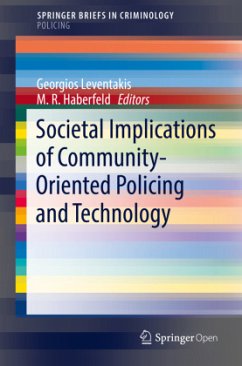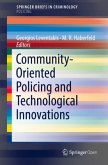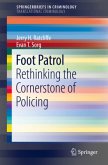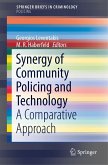This Brief presents new approaches and innovative challenges to address bringing technology into community-oriented policing efforts. "Community-oriented policing" is an approach that encourages police to develop and maintain personal relationships with citizens and community organizations. By developing these partnerships, the goal is to enhance trust and legitimacy of police by the community (and vice versa), and focus on engaging the community crime prevention and detection efforts for sustainable, long-term crime reduction.
The contributions to this volume emphasize the societal implications of new technologies for community-oriented policing goals, such as:
-Strengthening community policing principles through strengthed community feeling and lower feeling of insecurity
- Reducing the fear of crime and enhancing the perception of security in large, urban environments
-Enhancing citizens feelings' of empowerment, belonging, and collective efficacy
Contributions to this volume were developed out of the Next Generation Community Policing (NGCP) International Conference was co-organized by nine contributing research and development projects, funded by the Horizon 2020 SECURITY Program of the European Commission. It will be of interest to researchers in criminology and criminal justice, as well as related fields such as sociology, public health, security, IT and public policy.
The contributions to this volume emphasize the societal implications of new technologies for community-oriented policing goals, such as:
-Strengthening community policing principles through strengthed community feeling and lower feeling of insecurity
- Reducing the fear of crime and enhancing the perception of security in large, urban environments
-Enhancing citizens feelings' of empowerment, belonging, and collective efficacy
Contributions to this volume were developed out of the Next Generation Community Policing (NGCP) International Conference was co-organized by nine contributing research and development projects, funded by the Horizon 2020 SECURITY Program of the European Commission. It will be of interest to researchers in criminology and criminal justice, as well as related fields such as sociology, public health, security, IT and public policy.








